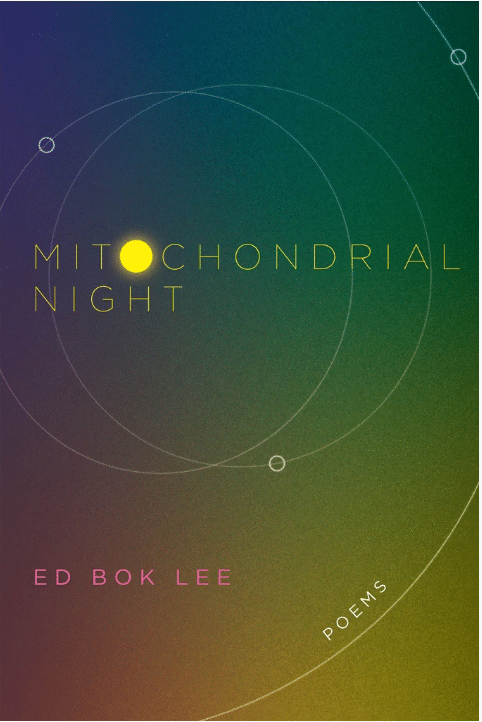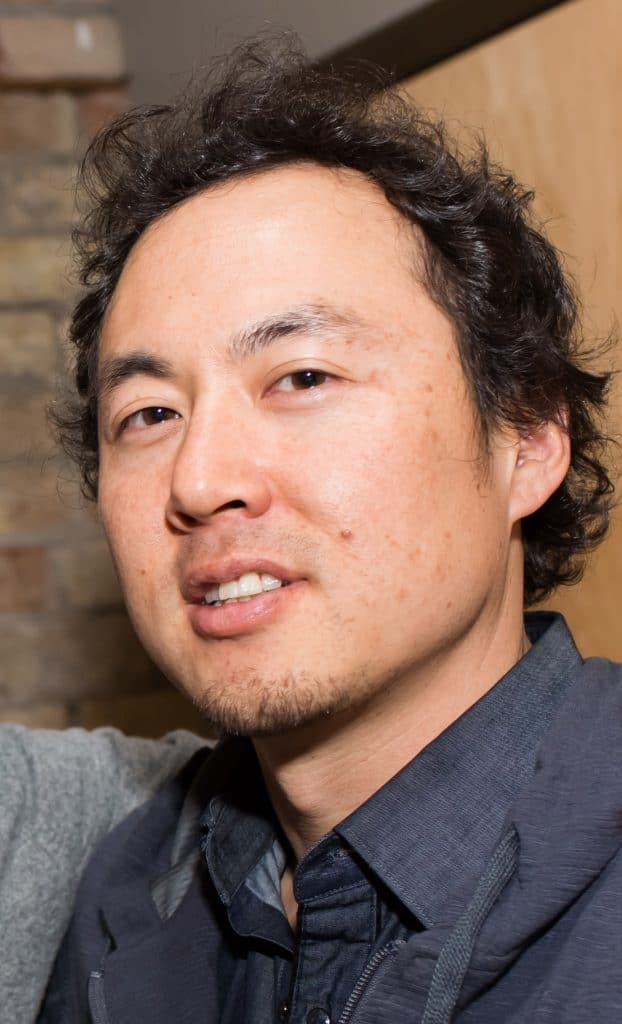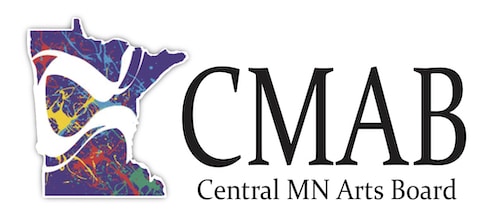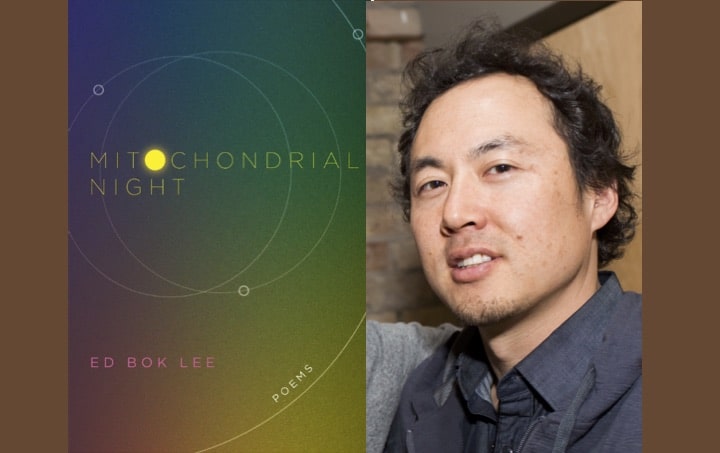For more than a month, I have been reading the finalist books for Lyricality’s “Read Poetry Central Minnesota 2020” program. In each book, I experienced a feeling too powerful to express, something beyond words. Now I’ve just finished reading Ed Bok Lee’s Mitochondrial Night, and his “Author Statement” has given me words to name my experience.
Spending a good many hours with five books of poems by five Minnesota authors, I feel as if I’ve spent much time in sacred spaces.
In his “Author Statement, Ed Bok Lee writes, “If, as Czeslaw Milosz wrote, ‘language is the only homeland,’ then poetry is the oldest, most beautiful, most generous and ‘real’ house of worship on our collective earth that I know.
“Every time I look into my daughter’s eyes to see the future, I’m reminded of this, and that the forces forever writing and revising every single biological cell in our bodies—in sometimes harmonious, sometimes conflicting, sometimes revolutionary ways—feels exactly like poetry.”
What makes a space sacred?
Some people consider Mecca, Jerusalem, or Rome sacred because religious celebrations or pilgrimages require them to go there. Stone Henge in England and the Khmer temples at Angkor in Cambodia, constructed by ancient civilizations, were sacred because of their alignment with the sun or stars at certain times of year. The cross shape of Europe’s Gothic cathedrals’ floor plan made them sacred to medieval worshippers.
Questions about origin, meaning, power, helplessness, love, and the nature of reality draw people to make sacred spaces, and to visit them. In sacred spaces, people encounter mystery and experience wonder. People who make and/or read poems also probe the nature of reality—of life. And they experience feelings familiar to mystics—mystery and awe.
Publishers Weekly says that Ed Bok “Lee strikes a dizzying balance between the organic and the cosmic, the intimate and mythological.”
A dizzying balance is an apt description of Mitochondrial Night. It also describes those liminal (transitional) spaces of encounter, where contradictory experiences and oppositional forces—solitude and intimacy/community, light and darkness, grievance and forgiveness, life and death, self and other—meet and conjoin.
To enter sacred space (or call it love-space, or paradox) is to accept that dualism is a hoax. To enter sacred space (to love with compassion), we must let go of our self-serving, hierarchical, “either/or” mindset. Inside the sacred, we embrace the connective conjunction—and.
We are experiencing rapid polarization. But what really divides us? Do the issues of identity politics—left versus right; feminism versus patriarchy; POCI versus white; LGBTQ versus straight—polarize us? Or, is the real distinction between people who accept and respect “otherness,” and those who habitually, reactively vilify “them, those people on the other side,” which leads to a destructive, warring way of life?
When we enter a sacred space (a place where wisdom is found), we gradually learn what the polarizing force really is, and where it dwells. Fear, which manifests as hate, is continually at war with Love, which manifests as kindness and compassion. Both Fear and Love are at work in every individual human, and every human lives in the threshold space between them.
There are some people who inhabit that threshold consciously, with self-awareness. I have met some of them. They have the vision to recognize, and the courage to enter, liminal spaces. They are willing to suspend certainty and live with contradiction. These people ask important, unresolved (perhaps unsolvable) questions about the meaning of “community and nation and world, cosmology, culture, otherness, language, truth, myth.”
These are the questions Ed Bok Lee is asking about how to raise his mixed-race daughter, born in 2016, “into a rapidly polarizing America and world.” He writes that his third book of poems, Mitochondrial Night, “ is an attempt to explore the refugee and immigrant status of all seeds . . . stars . . . cells . . . and ancestors. Where do any of us really come from, in both genetic and cosmic terms, and where are we going? . . . Who is the ‘us’—in terms of race, nationality, gender, species—that we most fundamentally seek to preserve.”
Today I would like to share examples from Ed Bok Lee’s Mitochondrial Nights, to show how reading poetry can feel like entering a mysterious, sacred space—a space of tension and paradox. In these poems, I feel as if I am peering deeply into a child’s eyes. I see suffering and hope, sorrow and joy, fear and love. In these poems I experience something I can only describe as sacred, by which I mean truthful and real.
Sacred Space: Stillness
‘Behold,’ says the poet. My friend Charles Wm. Preble said this over coffee one afternoon. We were talking about why poetry matters, and whether poets do important work. “Behold is a word that startles,” he said, “like a magician. To behold is to be still, observe, be held.”
Writing and reading a poem are akin to birdwatching or enjoying a sunset. Poetry is meditative, it encourages contemplation. It comes from and leads to the inner stillness of nonjudgmental observation.
Mystic meditators teach their students to quiet the mind into sacred stillness, hoping to awaken consciousness. The first step is toward awareness, is to observe.
Look, is also the opening call of Mitochondrial Night, in its first poem “Random Floating Cells With Style,” which addresses the reader with these words:
You gathering of random floating cells with style.
You—all of you—dying trillions of times every hour
to recommence each new forever inside these eyes. Look.
Look at me seeing you and seeing me from the beginning of the universe
and time.Never forget: wherever, whenever you are, is the history of all you loved
in the dark.
Sacred Space: Interconnection
From the stillness of observation comes the recognition of interconnectedness. Coffee House Press, the publisher of Mitochondrial Night, says this about Ed Bok Lee’s poems: “Using lush, exact imagery, whether about the corner bar or a hilltop in Korea, Lee is a careful observer, tracking and documenting the way that seemingly small moments can lead to larger insights.”
Mystics—those people who traverse sacred spaces—might tell us where those large insights lead. The goal of mysticism is to see the interconnection of everything. A large insight might reveal that to destroy another being, or to destroy the environment in which we live, is self-destructive.
Poets, however, don’t usually aim to teach their insights, or tell us where those insights ought to take us. I’ve written before that poems don’t provide answers—they are not little how-to manuals for living. Instead, poets invite us to participate, to contemplate alongside them, to see and sense, and then to make our own sense. My favorite kind of poem acts like a companion. It walks beside me, encouraging me to experience insight.
For example, in “Sunday Listening” the poet contemplates the “Babbling // coos and clucks” his fourteen-month-old makes, comparing her sounds to:
. . . the nomenclature
of trees, wild syntaxof grass, weeds, planets, bottles,
spores, and so many dragonflies!—each with a language as baffling as my own
daughter’s lexical singsong
…
I’m not told what to think or how to feel. I’m invited to quiet my noisy thoughts and simply observe. And what I see is not only an infant and her relationship to prehuman beings, but also her ancestors’ DNA in:
…
this little heart-shaped mouth
so hard at work with bothher mother’s and father’s lips;
all four grandparents’ taste buds;all eight great-
grandparents’ glottises in one,
…
In sacred spaces we encounter our heritage—family legends shared at funerals, tribal folklore told in sacred circles; religious and cultural stories, passed from generation to generation in ceremonies, rituals, and liturgies. We remember the past; we dream of a better the future.
Sacred Space: Hope
In sacred spaces, we plant our insights into our children and grandchildren, hoping to send them out with enough wisdom to know how to face the problem of being human, and despite the inevitable heartbreak and trauma, to love life.
In “Babygirl Learns to Take a Trip Around Venus,” Ed Bok Lee writes:
Look, I’ll say, listen to that far bouquet of stars, its pulse
like an autumn copse of quaking aspens.
I’ll insist: in this infinite universe, no one cares: Where are you from?
What are you?
It may not be true.
But I’ll say it anyway: far in your future,
all will recognize a human being when they encounter one.
And if they don’t—
as with violets, red maples, stinging nettles, even Jupiter’s loneliest moon—
you’ll still know what to do.
Sacred Space: Love
You may say I’m a dreamer. But, as John Lennon so famously sang, I’m not the only one.
The world is full of poets.
Poetry matters because poets matter. Poets are seers. They call us to see–to gaze, to behold, to recognize that life is dear.
In “Random Floating Cells With Style,” Ed Bok Lee says it this way:
To love one another with quantum certainty is to volumize the stars.
Experience the dizzying balance of sacred encounter
Read poetry.
To Order Mitochondrial Night by Ed Bock Lee
Mitochondrial Night is published by Coffee House Press, an internationally renowned nonprofit publisher of literary fiction, essay, poetry, and other work that doesn’t fit neatly into genre categories. Lyricality encourages you to support your local independent book seller, or if you prefer to shop online, support this Minnesota publisher by ordering directly from them.
Click here or on the cover image below to order Mitochondrial Night.

About Ed Bok Lee

Ed Bok Lee is the author of Whorled (Coffee House Press) and a recipient of a 2012 American Book Award and the Minnesota Book Award in Poetry. Lee is the son of North and South Korean emigrants–his mother originally a refugee from what is now North Korea; his father was raised during the Japanese colonial period and Korean War in what is now South Korea. Lee grew up in South Korea, North Dakota, and Minnesota, and was educated there and on both U.S. coasts, Russia, South Korea, and Kazakhstan. He teaches at Metropolitan State University in Saint Paul, Minnesota. Other honors include the Asian American Literary Award (Members’ Choice Award) and a PEN Open Book Award.
Read Poetry Central Minnesota 2020
Mitochondrial Night is one of five books selected by Paige Riehl for Lyricality’s “Read Poetry Central Minnesota 2020” program. The other finalists books are:
Carrying Water to the Field: New and Selected Poems by Joyce Sutphen


